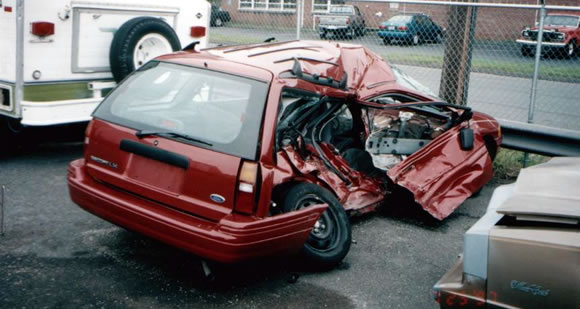 Volvo announced in January that they will discontinue the V50 in the US. In writing about the death of the last Volvo station wagon, CNN Money’s Alex Taylor III posted an odd article reminiscing about his youth in the suburbs of the 1950s while positing that the death of wagons in the US was pretty much inevitable.
Volvo announced in January that they will discontinue the V50 in the US. In writing about the death of the last Volvo station wagon, CNN Money’s Alex Taylor III posted an odd article reminiscing about his youth in the suburbs of the 1950s while positing that the death of wagons in the US was pretty much inevitable.
His description of the wagons of the 1960s seems to place all of the problems with American cars on the shoulders of station wagons:
American buyers first turned away from station wagons during the 1973 oil crisis. Their extreme length, emphasized by long rear overhangs to accommodate a third seat, made them natural targets.
Sorry, but almost all American cars were lengthy and heavy boats back then, not just wagons. There is nothing intrinsic to the wagon platform that says it needs to be the length of an aircraft carrier. That’s just what Detroit was making at the time.
He then speaks of the rise of the SUV as if it was a rational change for American buyers, while completely overlooking the fact that they have the same problems of poor fuel economy and extreme length that the cars of the 60’s did. He claims that they are “far more utilitarian” than wagons and offered “a lot more cargo space.”
There are many, often irrational, reasons Americans moved to SUVs, but the idea that wagons have less utility is ridiculous. I’ve got more space in the back of my brick than my buddy has in his Nissan Pathfinder. Yes, SUVs have 4-wheel drive, but that only contributes to their poor gas mileage and most drivers don’t need it anyway. AWD anyone?
As for Volvo, he sees their reputation for reliability as a problem, rather than a benefit:
Volvo probably did itself a disservice by running testimonials from owners who drove their Volvos for years and years. When you put a million miles or more on a car, it limits the opportunity for repeat business.
Yes, automakers shouldn’t tout longevity as an asset. They should just make cars that fall apart in 6 years so they can sell a new one. That’s what Detroit did, right? We can see how well that did for them.
